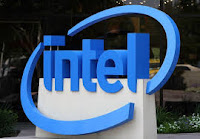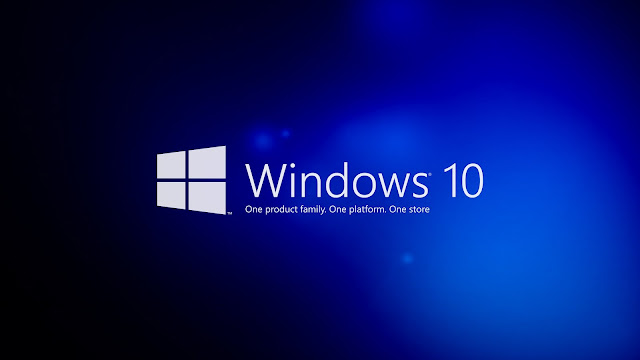Intel or Amd- Make a choice
Alrright!
You may be looking to get a PC or to build one and we all know there are a lot to consider but right now I'm looking to help you make a decision, AMD OR INTEL. Fortunately, we’re here to help you get started.
Your CPU/Processor is by far one of the most important components of the system. If the motherboard is the PC’s skeleton, the CPU is the brains of the operation and Without it, your pc will be a legless and headless race horse. For that single reason, determining the best processor for you is essential for making your PC get the job done.
To all of you looking to get a PC for just business and stuff that don't need power, look away. you can literally get whatever you want done with a celeron (direct equivalent to a two legged race horse)
Like the war waging in the graphics card space between Nvidia and AMD, the CPU market sees AMD take on Intel. Both of these company’s chips have their own advantages and shortcomings. Let’s look at how processors like the desktop-type Bristol Ridge APUs stand up to Intel’s Kaby Lake chips
Oh the Performance!
Starting with the most important feature. If you want the performance... and I mean real performance, then don't just turn your head but turn your whole body (feet included) towards Intel. Not only does the Santa Clara chipmaker rank consistently better in CPU benchmarks, but Intel's processors draw less heat as well, earning them lower Thermal Design Point (TPD) ratings across the board.
 Intel's implements something called hyperthreading, which they started since 2002. Hyperthreading keeps existing cores active rather than letting any of them remain unproductive. Makes you wonder what AMD's doing right?
Intel's implements something called hyperthreading, which they started since 2002. Hyperthreading keeps existing cores active rather than letting any of them remain unproductive. Makes you wonder what AMD's doing right?
Here's what.
AMD focus on increasing the number of cores in its chips. On paper, this would make AMD's chips faster than Intel's but physics has thought us that heat dissipation reduces efficiency and AMD's are like furnaces in furnaces compared to intel.
"So what really is AMD doing?" you ask.
While cooling an Intel processor is a rather straightforward process, because AMD shove as many cores as possible into a single processing unit, its chips tend to run hotter, much to the discomfort of affordable cooling solutions.
Take AMD's FX 9590 for example. It clocks in at 4.7GHz, or 5.0GHz with AMD Overdrive installed. Oh, and it has eight cores. Eight cores I tell you!
That's twice the number of cores in the Core i7-6700K. But, according to PCMark tests, the Intel still comes out ahead in terms of overall performance.
Yes, AMD's processor technically has a faster clock speed, because more cores comes a heavier workload but remember that stuff about physics and efficiency? Yeah, that stuff. and that's why intel outdoes in performance.
So, what really is AMD doing? Read on!
Man the Graphics!!
If you're building a PC. If you're building a gaming pc, then dude what are you thinking, you should be using a discrete graphics card rather than relying on a CPU to run games. It stresses out your PC and I'm sure you don't want it going in flamees like those samsung phones (Is that still a thing?) . Anyway Even though we're reaching the point where integrated graphics are powerful enough to run without a separate GPU, dude get a graphics card.
Except if you're looking to play with a hard drive full of emulators, the latest Intel Skylake, imminent Kaby Lake or AMD A-Series APU processors will likely fare just as well as any top-end graphics card. BUT DUDE JUST GET A GRAPHICS CARD. HOW HARD CAN THAT BE?
There was a time when for low to mid-tier gaming, AMD's Radeon chips were far greater to anything offered by Intel but just when we thought it was over we were hit hard in the head by the arrival of Intel's Iris Pro graphics. And here I am talking about something completely off.
Back to the topic. If you'll be pairing your CPU with a powerful AMD or Nvidia GPU, an Intel processor is the better option. That is, ofcourse using an Intel Core i3 or i5 CPU rather than an AMD equivalent can make the difference between 15 and 30 frames per second (shut up, you know that's a lot).
While there is no clear winner in the graphics department, survey says AMD is the better option for integrated graphics (for now), while Intel works best when coupled with a GPU.
But that still doesn't explain what AMD is doing. Maybe this will 👇
Overclocking
When you buy a new computer or even just a CPU, it's typically locked at a specific clock speed as indicated on the box (whaaaaat? you didn't know?). Some processors ship unlocked though, allowing higher clock speeds than recommended, giving users more control over how they use their components (although, you've gotta really know what you're doing. so don't mess with that stuff).
 The unlocked chips Intel does offer, however, are delightfully faster than their AMD counterparts. If you're shopping on a budget, AMD offers the most bang for your buck in terms of overclocking. Otherwise, where money is no object, Intel's exhibits the best clock speeds around with its unlocked CPUs. Right now I'm assuming you know what you're doing.
The unlocked chips Intel does offer, however, are delightfully faster than their AMD counterparts. If you're shopping on a budget, AMD offers the most bang for your buck in terms of overclocking. Otherwise, where money is no object, Intel's exhibits the best clock speeds around with its unlocked CPUs. Right now I'm assuming you know what you're doing.Support And Availability (S&A)
Do you know the biggest problem with AMD processors is the lack of compatibility with other components? I'm assuming you don't know because if you did, you wouldn't be here. Anyway, Specifically, motherboard (mobo) options are limited as a result of the differing sockets between AMD and Intel chips. While there are plenty of options for both brands of chips, the fact of the matter is there are abundantly more mobo choices with Intel sockets.
So what the orange crackers is AMD doing?
Again, Do you know that AMD's chips make a little more sense from a hardware design perspective (How? What do you mean how?).
Here's how. With an AMD motherboard, rather than having metal connector pins on the CPU socket, you'll notice those pins are instead on the underside of the CPU itself. As a result, any processor issues you might run into are less likely to be inflicted by the motherboard's faulty pins. On the downside, replacing a high-end processor is usually like burying a headless horse. It's hard on your wallet and you may regret having the first one when you could have easily shelled out the cash for a new mobo.
Ultimately, deciding on a CPU is up to personal preference. Where an Intel processor works best with, lets say, an Nvidia GTX 1080 graphics card, AMD's chips are surprisingly capable without a graphics card equipped. In some cases that's all you need; but that's only in some cases.
Prices kill.

For you and I, the bargain shoppers (you know it's true), the most common misconception is that AMD chips are more affordable than Intel. Truth be told, AMD does its best CPU work at the entry level, which could explain this mistaken belief.
An Athlon X4 860K, for instance, boasts a 3.7GHz frequency (4.0GHz with Turbo Boost) for only $70 (that's about £56.50, ₦22,067) on Amazon. For a quad-core, that's not a bad as long as you aren't expecting much as far as integrated graphics are concerned.
But you can also get something like the AMD A6-5400K around $40 (about £32.29, ₦12,610) on Amazon. However, you could say the same about Intel's comparable Celeron series.
The truth is that both Intel and AMD processors typically retail at about the same price; AMD is only known for being cheaper because its chips aren't nearly as popular once you hit that $180 (about ₦56,745) mark.
Being known for cores, AMD will give you more for less, but Intel consistently outdoes them due to hyperthreading.
Now to the biggest, most suspense filled question to hit humanity: What the processor is AMD doing?
Even I don't know.
What do you think?




